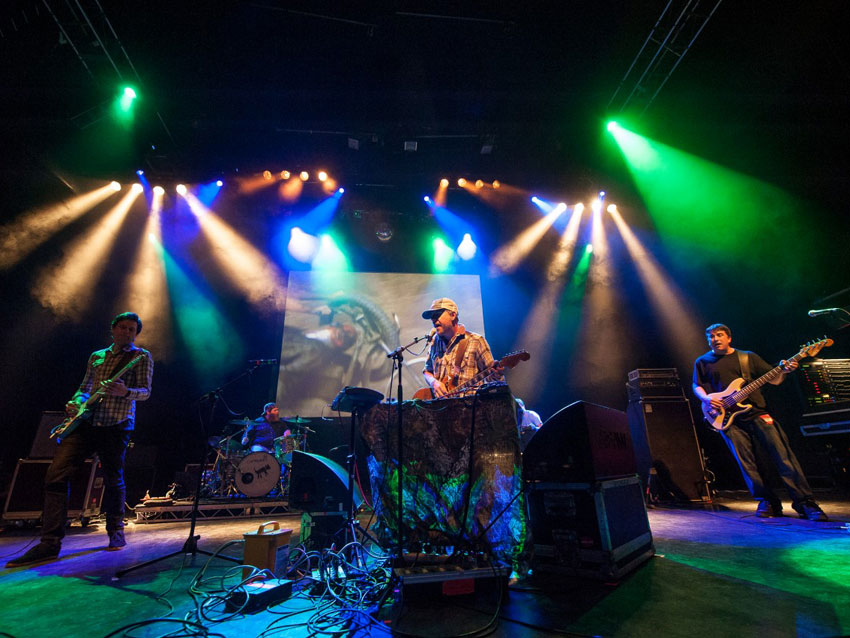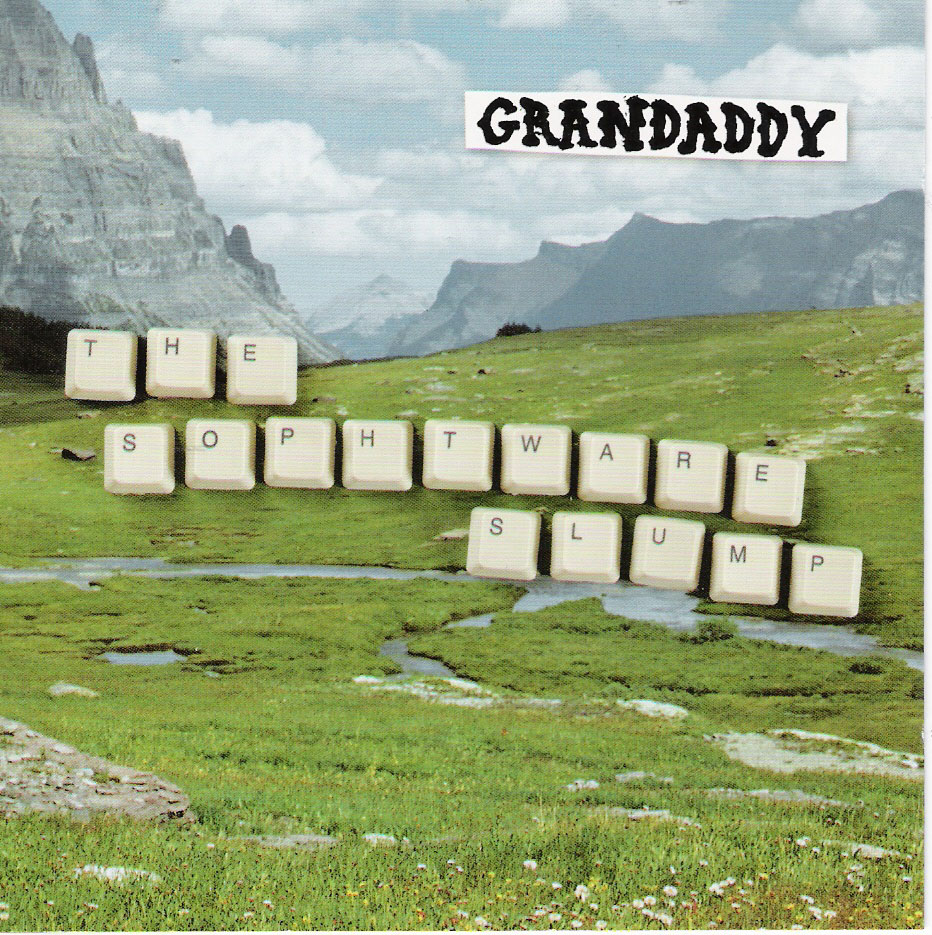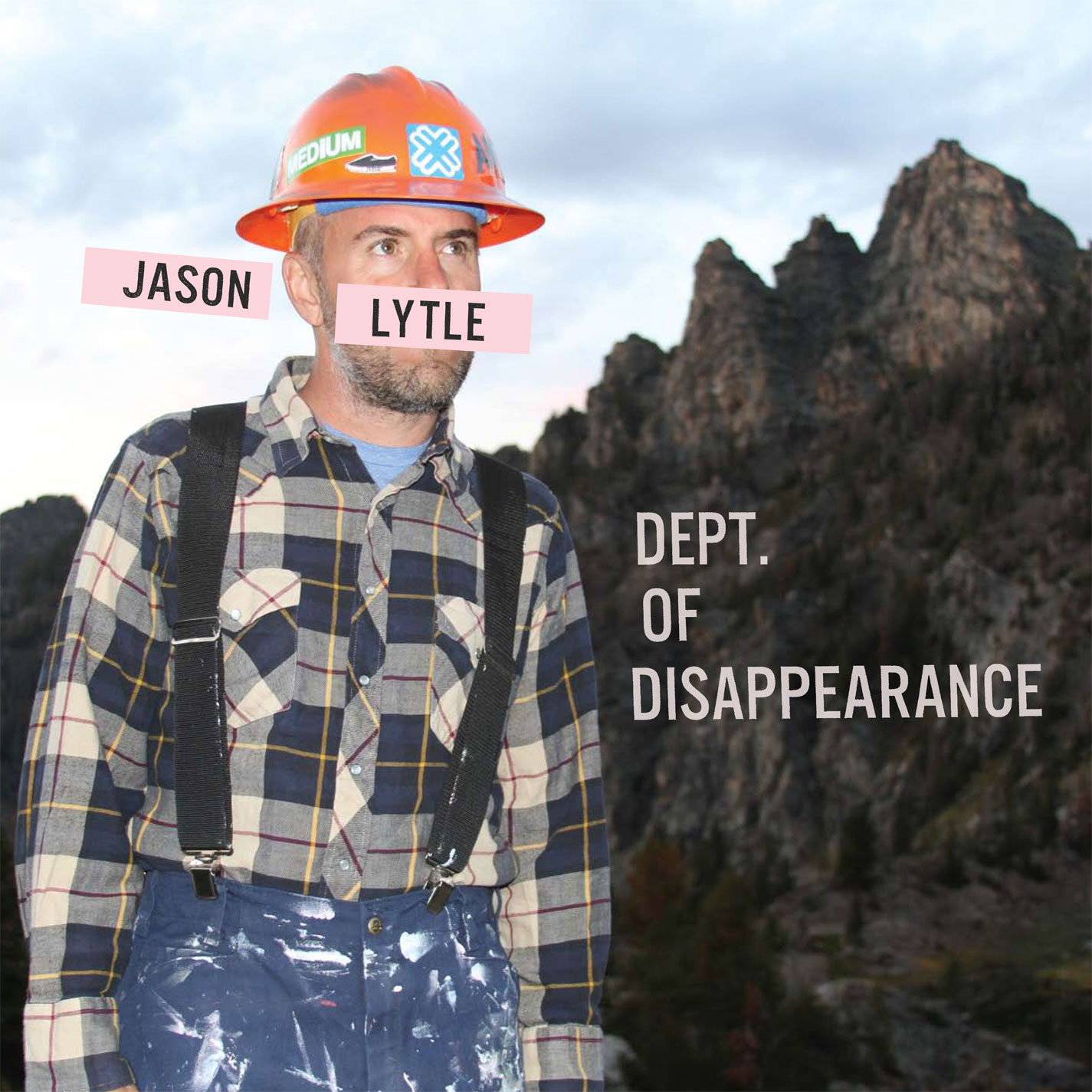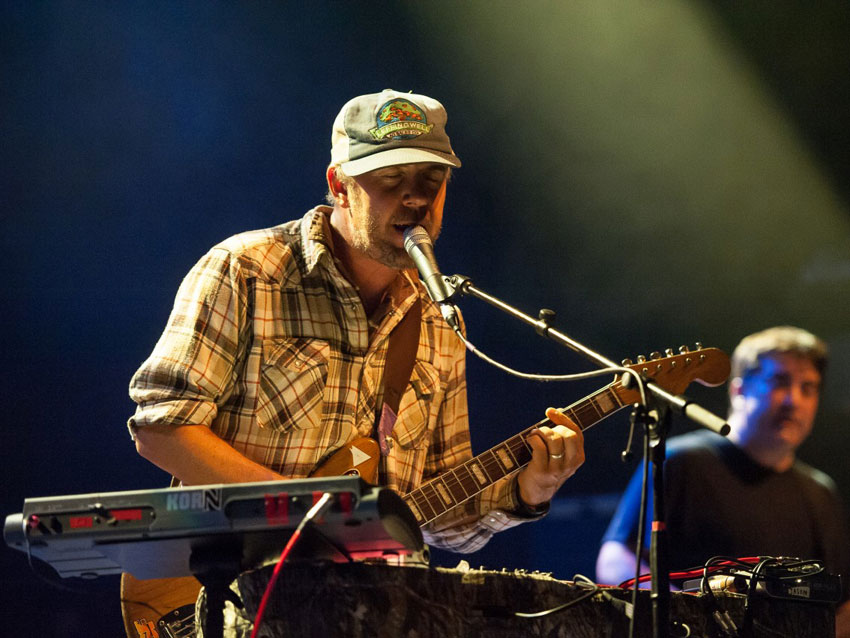Interview: Jason Lytle on the Grandaddy reunion, the analogue age and cave recordings
The introverted indie antihero talks

Want all the hottest music and gear news, reviews, deals, features and more, direct to your inbox? Sign up here.
You are now subscribed
Your newsletter sign-up was successful
Jason Lytle made his name fusing colourful synths and guitar drones into near-orchestral gentle pop perfection with Californian four-piece Grandaddy. The band (sometimes just Jason under the Grandaddy moniker) released four acclaimed albums before Lytle called time on the project in 2006, partly for financial reasons and partly (we suspect) out of Lytle's desire to not carry the responsibility for his band member's lives and livelihoods.
In the late summer of this year the group reformed for a new stint of triumphant live appearances, wrapping up the dates with a headline show at the Shepherd's Bush Empire, London on 4 September. We nursed a beer with Jason in his West End hotel the day after the band had performed to a rapturous crowd in the UK capital and found him to be every bit as surprising, awkward, melancholy, quiet, considered and brilliant as his back catalogue would suggest.
Read on to find out his thoughts on the Grandaddy tour, the religion of technology, songwriting synaesthesia and the story behind his most faithful companion: a 1970s Fender Jazzmaster.
Jason Lytle's latest solo album, The Dept. Of Disappearance, is released 15 October.
"If you had to force me to hang around with a bunch of dudes, this is the group of dudes that I would choose to be around, but I really like being by myself"
Has the recent Grandaddy reunion changed the way you think about the band?
"I love the camaraderie. If you had to force me to hang around with a bunch of dudes, this is the group of dudes that I would choose to be around, but I really like being by myself. I like moving quick and stealthily and making decisions that are snappy, which isn't easy to do when you have all of these grown men with gear etc. But I knew that it was a finite chunk of time that we were doing it and I thought, 'Alright, it's work. I get paid. I only have to factor in a little bit of uncomfortableness.' Always remembering that I'm in a very, very fortunate position and not to take any of this for granted. And it's been great being with the guys again."
Did you miss the other band members?
Want all the hottest music and gear news, reviews, deals, features and more, direct to your inbox? Sign up here.
"Yes. I did, actually. It's almost like, imagine if you went to war, you know? We've been through so much shit together that it's like coming back from a tour of duty and there's so much you've shared and gone through that there is a bond there. It's something that cannot be compared to anything else. A lot of it was close to going to war, you know? We're not really super emotive, or touchy feely, so to have that and go through all of the stuff with these guys that are kind of sheepish and quiet... There's this level of understanding."

Grandaddy performing live in London, September 2012. © Sebastien Dehesdin/Demotix/Corbis
You've had an amazing crowd response during your final show. Is it hard to walk away from it now?
"I'm just happy the show went as well as it did. I'm not addicted to the adoration so much, that I'm like, 'I need more, man!' I'm just happy that there were like stacks and stacks of people. We played well and everyone was happy and that's all I care about. I could easily shut it down, like right now - I don't care. That was everyone's moment last night. There's no pressure to do anything else. There's no pressure at all."
Could you describe the atmosphere of the rehearsal sessions?
"The rehearsals were actually pretty shitty. Well, the rehearsals went really well and that was just like the epitome of band bonding, but everyone still lives in Modesto [my hometown] and [from my new home in Montana] that was like a 17-hour drive, so I'm like back in Modesto and that's a bit heavy. We got this rehearsal space in a warehouse that was, coincidentally, right smack dab in the middle of where I grew up and went to high school, so I had all of these weird memories of everywhere. But it was like: 'Get into rehearsals. Eye on the prize. Work. Please let this go well.' And then things sounded good and it was a big relief.
"We had scheduled two separate rehearsals - one week ahead and one week right before all of the shows started, so the first week I was pretty afraid of plausability and potentially realising that this was a horrible idea and that I'd have to drive all of the way back to Montana thinking, 'What have I got myself into?' But it was good. It was really good.
"I made master setlist that I distributed to everyone via email and we ran through all of these songs and I was like, 'Holy shit! This actually sounds pretty good.' So... Relief. Big relief."
"I have this fatalistic weird thing where I just think: 'No one's ever gonna get it. Everyone hates us'"
Do you feel the world is more receptive to Grandaddy now?
"I don't know. I have this fatalistic weird thing where I just think: 'No one's ever gonna get it. Everyone hates us.' I have this built-in kind of thing and even the best of our songs, I just don't... I just think it's like the stupidest thing ever. As long as there's a Sarti, or a Chopin or a Beethoven, I just think, 'this is like the dumbest fucking thing ever.' But that's my own fault. And I don't think anyone's ever going to get it."

Grandaddy's second album, 2000's Sophtware Slump
On The Sophtware Slump you dealt with the intersection of technology and nature. In recent years the world has gone through a sort of return to the analogue, whether that's listening to vinyl, eating whole foods, riding bikes etc. Has that album grown more relevant?
"I would always comment about that that Sophtware Slump was, if anything, about technology in the form of a baby learning to walk. It was interesting, as it started to develop, watching if we'd decide to go this or that direction with it. It's so amazing and wonderful and informative and potentially beautiful, but it's like 'Really? You're gonna do this with a computer?'
"It was all about the awkward phase and getting through it. It was nothing prophetic on my end. It was just like, 'If you have a half a brain to begin with and you have this tool, you can do good. Or you can blow shit up on fucking video games, like idiots!'"
"Technology is just a tool. It's not a god. It's just one of those things that you either get it or you don't get it"
Unlike many techno-critics, you're not someone that fears technology, or doesn't understand it or use it...
"No. It's just tools. It's like money. When I was really young, my mom said, 'Listen: money - people think that it's God - but all it is is a tool.' Technology is just a tool. It's not a god. It's just one of those things that you either get it or you don't get it. There's all of these rich, powerful people out there that don't fucking get that and it's up to us little people out there to get our little jabs in whenever we can. In a very loving, positive way... It's that whole thing of 'guns aren't dangerous, it's the people that wield the guns'. It's the same idea. It can be a beautiful, wonderful thing, but people are just... fucking stupid."

Jason Lytle new solo album Dept. Of Disappearance, due for release on 15 October
You've got a new solo album, Dept. Of Disappearance, on the way. What single thing has made the biggest impact on your writing in recent years?
"Weather. Without a doubt. I check the forecasts and I find it if there's like three shitty days and four sunny days coming up, I'll be like, 'Alright, studio time.' And then when the weather comes around I really look forward to it and it's like my little gift to myself because I've been working really hard on those cruddy days. In Montana, it's all about weather. The winter is eight months long and pretty brutal, so I've gotten into making records in the winter time, for obvious reasons. So definitely the weather. I couldn't be prouder. I'm so connected to it. The fact that I'm adhering to weather is like, 'I win!'"
Jason Lytle's new single, Your Final Setting Sun, taken from the new album Dept. Of Disappearance
You've said before that your ultimate studio would be outside. Have you ever done any recording outside?
"The one occurrence that does stand out is with [US indie/folk star] M. Ward. He used to be in a band called Rodriguez and I recorded them. Kyle Field [now of Little Wings] was also a member. I decided I wanted to record in a cave. So we did a cave recording and it doesn't sound very good, so that was that. People have been chomping at the bit trying to get this old Rodriguez recording, but M. is like, 'No.' It might just need another five years..."
"The synth stuff is like more colour. The guitars I hear as like brown and beige"
There are definite orchestral elements to your music. Have you had any formal musical training?
"It's more fascination than anything else. [I've had] zero training. I'm more of a visual person. I put the piece together like making a puzzle. It's all just natural inclination. It's all feeling. I just keep adding until I start to feel. Not slopping on the gravy, but just adding little bits. It's a little scary how just the one little element can be, like *feigns a sigh of relief*, 'Aaah, yes! Fucking thank you! I found it.' So it's just slowly adding until I start to feel it."
How do you tell if it's going to be a guitar, say, or a keyboard part?
"It depends. The synth stuff is like more colour. The guitars I hear as like brown and beige. The synth and electronics start to bring in more colour. I love the colour."

Jason playing his beloved 1970s Fender Jazzmaster live with Grandaddy
You must have amassed quite a gear-haul over the last 15 years. What's your favourite find?
"My favourite synthesiser is probably the Roland Juno-60. It's like the most flexible and you can't program it, so the sound that you're gonna get is the sound that hear right at that moment. Live, my favourite gear is more like nerdy recording stuff, compressors and pre-amps and stuff like that."
"My Jazzmaster is like having an old pal - a good old dog"
What's the main keyboard/synth in your live setup?
"I actually joined the throngs of other folks and I have a Nord Electro 3, which is pretty incredible. They have like the whole library that exists online and you can sift through all of the sound and you can load it up, so there's a sound for whatever you're doing. It's funny, I've always been super annoyed by people on stage with one of those X-stands and a Nord, so I have to put a blanket around it - some people put them in these little organ housings - just to make sure it doesn't look like a fucking 'computer stick', you know?"
What's your main guitar? What's the story behind it?
"It's a good story actually. It's a Fender Jazzmaster. Grandaddy played for many years and we finally got signed. The whole time that we'd been playing all of those shows I had been using a bar guitar. At some point I think I iterated that to the guy who signed us and he was like, 'OK' *gives an eyebrow raise*. Then, as a signing gift, he gave me this woodgrain 70s Jazzmaster and it's the fucking best guitar ever. It has a very neutral sound and it's so beautiful, it's just wood and it's like having an old pal - a good old dog. And I've never had another guitar. All of the Grandaddy albums, that's it, that's the only guitar. It's never had any major repairs or anything. It's bombproof."
Matt is a freelance journalist who has spent the last decade interviewing musicians for the likes of Total Guitar, Guitarist, Guitar World, MusicRadar, NME.com, DJ Mag and Electronic Sound. In 2020, he launched CreativeMoney.co.uk, which aims to share the ideas that make creative lifestyles more sustainable. He plays guitar, but should not be allowed near your delay pedals.
